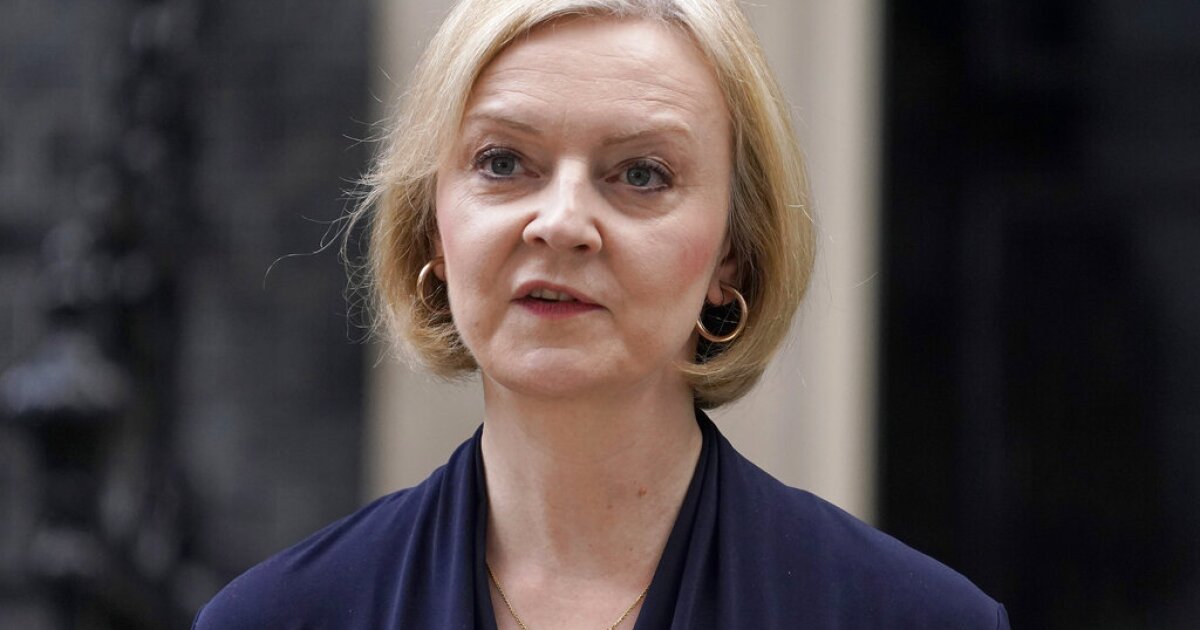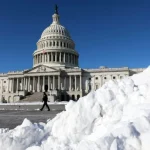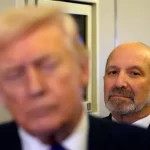

U.K. Prime Minister Liz Truss’s abrupt resignation just weeks after taking power has thrown Britain into disarray again, rendering the United Kingdom an object of pity on the world stage.
“You don’t want to see your friend in a mess,” one senior European official told the Washington Examiner Thursday. “You don’t want to see your biggest ally in a domestic mess as well.”
Truss’s career unraveled after an unexpected “mini-budget” proposal to cut taxes and increase government borrowing caused the value of the British pound to crater, in comparison to the U.S. dollar. The fiasco leaves the next prime minister with the unenviable task of confronting a domestic economic crisis while the U.K. tries to buttress Ukraine’s attempt to repel Russia’s invasion, and perhaps renders Truss herself a cautionary tale.
“Of course, instability anywhere in the world is a problem for the U.S. It’s just a matter of degree,” Sen. Ron Johnson (R-WI), the ranking member on the Senate Foreign Relations subcommittee for Europe, told the Washington Examiner. “But where you have such a special relationship with a country that’s been so key for so many centuries, quite honestly, that’s not good for the U.S. That’s not good for the world.”
LIZ TRUSS FELL BECAUSE COVID HAS MADE US ALL SOCIALISTS
The Conservative Party hopes to pick a new leader by Oct. 28, in an apparent effort to put the fiasco behind it as quickly as possible.
Yet whoever wins the sprint into 10 Downing Street next week will have to make economic “decisions of eye-watering difficulty,” as U.K. Chancellor of the Exchequer Jeremy Hunt put it when he took over from Truss’s first finance chief.
“That’s a harbinger of what can happen in the U.S.,” Johnson said, referring to the problem of inflation that has overtaken many Western economies in the wake of the pandemic. “It’s too many dollars chasing too few goods. … She wanted to address the supply side of that equation, so she recommended tax cuts, and that freaked out the markets. And whether it was justified or not, markets are markets.”
Her successor will try to stabilize the economy without the benefit of a campaign to rally public support and unite a fractious Conservative Party.
“Whoever the next leader is could possibly turn things around to scrape through before the next election,” the Hudson Institute’s Luke Coffey said. “In parliamentary democracy, you start to cycle through all the talent you have on your benches, and eventually, you become stagnated in your leadership and your policies because there is no fresh thinking. … And then, over the course of 12 years being in government, you start to run out of talented people. It’s just part of the natural life cycle of a parliamentary democracy.”
The political pressure has been intensified by London’s inability to secure a trade agreement with the United States, a pact that British proponents of Brexit — the U.K.’s departure from the European Union — had touted as a central plank of their economic and foreign policy.
“We should have entered into a trade agreement with the U.K. almost immediately around the whole Brexit thing,” Johnson said. “They needed that lifeline, and, unfortunately, it didn’t get done.”
That lapse was a byproduct of former President Donald Trump’s skepticism of trade deals, despite his broader support for the Brexit effort. Sen. Chris Coons (D-DE), a close ally of President Joe Biden, has co-authored a bipartisan proposal to launch free trade talks, but the initiative remains stymied by the Biden team’s wariness of free trade talks.
“Trade deals are hard to do, so you really need strong presidential leadership that really wants to get it done,” Johnson said. “Unfortunately, Biden is a trade warrior as well.”
The difficulty in reconciling domestic priorities with the needs of the trans-Atlantic alliance was apparent last week when Biden criticized Truss’s economic proposals.
The perception that there is a shortage of politicians qualified to take over the top job is widespread in London. Some Conservative lawmakers are inclined to recycle Boris Johnson, who himself was only ousted in July and still has an investigation hanging over him into whether he lied to Parliament.
Truss’s collapse, meanwhile, could embolden Russian strategists in the face of the Ukrainian counteroffensive by renewing their confidence that inflation and a possible energy crisis could undercut Western support for Kyiv.
“Hopefully, it doesn’t transfer to instability to Europe,” Slovenian Prime Minister Robert Golob said at a summit of EU leaders. “Every kind of instability at this … time is not good news for the world.”
Ben Wallace, Britain’s defense secretary, took himself out of the running for the prime minister’s job on the grounds that “the current threat requires stability in that office.” The defense chief’s stolid approach has drawn praise in Parliament, but the domestic circus allows other leading European powers to present themselves as a more reliable ally for the U.S.
“We’re doing our part, and our hand is steady,” French Foreign Affairs Minister Catherine Colonna said Friday during a visit to Washington, D.C. “France is your ally and your friend. So is Europe. Our alliance may be based on solidarity, transparency … predictability, and trust.”
CLICK HERE TO READ MORE FROM THE WASHINGTON EXAMINER
“The most important thing that any U.S. president can do, Republican or Democrat, is not comment on domestic British politics … just stay out of it and continue with the military-to-military cooperation, intelligence-to-intelligence cooperation, security service to security service cooperation — keep up with that,” said Coffey, a U.S. Army veteran who worked as a special adviser to one of Wallace’s predecessors in the Defense Ministry.







